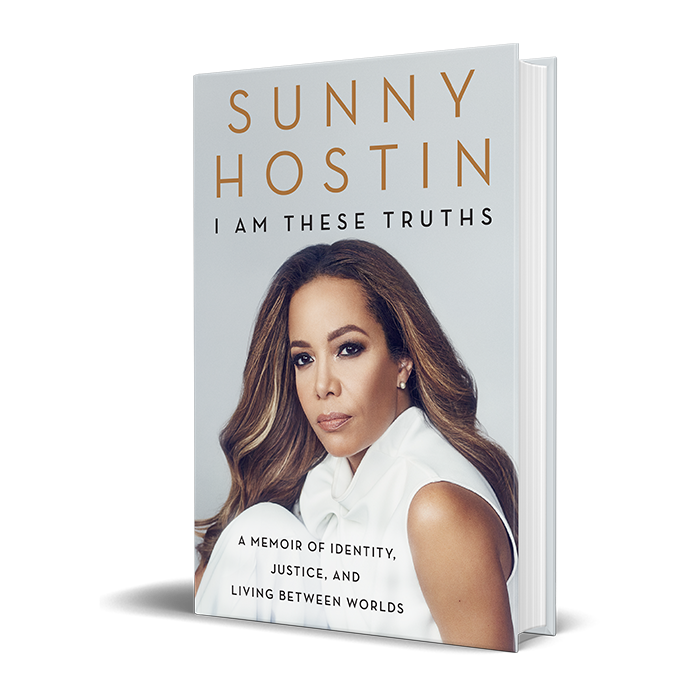By Brianne Garrett
Sunny Hostin will never forget where she came from. Before the Emmy Award-winning co-host joined the cast of The View in 2016, she was a senior legal correspondent for ABC News, a legal analyst for CNN and before that a federal prosecutor.
“I’m a lawyer first,” says Hostin, an active member of the National Black Prosecutors Association. As a lawyer, advocacy—especially for underserved youth of color—has always been a big priority. “The 15-year-old kid who got arrested for marijuana possession, does that have to be a felony?” asks Hostin. “Or can that be a diversion program where he gets drug treatment or he gets community service and it gets wiped off his record?”
As a television host and correspondent, she’s sought to advocate for social justice issues. But when it came to systemic racism, it didn’t occur to Hostin until recently that her testimony could expose and, hopefully, help correct it. That realization informed the basis of her new book, I Am These Truths, a detailed account of her journey from the housing projects of the South Bronx to her seat on The View.
Hostin, a proud “Afro-Latina” woman, as she calls herself, hasn’t always embraced her multicultural roots. Born in 1968 to a Puerto Rican mother and a Black father, she spent much of her life feeling ostracized for checking more than one box. “I grew up living in the grey,” she says. “I was otherized.”
The memoir, published in English and Spanish at the suggestion of Justice Sonia Sotomayor, was published in September. It was originally slated to be one of two books released by Hostin this year. But the other, Summer on the Bluffs, her debut novel about the Black beach community of Martha’s Vineyard, was postponed until 2021. In light of heightened police brutality and racial injustice, Hostin believed releasing her memoir was more important.

“When you’re telling a story, you have to humanize it; people need testimony,” says Hostin. “I thought, ‘I’ll be the face of this story.’” It wasn’t an easy feat for a journalist used to telling others’ stories. But the book is filled with honest, unfiltered stories, including one about her parents’ experience with housing discrimination.
The book is, in many ways, a risk for Hostin, who exposes a great deal about the discrimination she’s faced as a public-facing media professional, even at her current employer, Disney. Requests to remove such content didn’t hold her back. Hostin’s experiences not receiving her own dressing room like other hosts, being told to “stay in her lane” when it came to coverage and getting paid less than her white colleagues with fewer credentials all made it into the memoir. “I think it’s important to call out that kind of behavior,” Hostin says. “Whether it was intentional or not.”
Hostin was pleased to learn her company was receptive to criticism in the book and has welcomed her suggestions for creating a more inclusive, equitable workplace. But whether it will result in lasting, effective change has yet to be determined. The same can be said of most every company pledging to address issues of systemic racism, but Hostin is hopeful. “It’s a result of this national reckoning,” she says, acknowledging there’s still quite a bit of work to be done.
If there’s anything Hostin has learned from releasing her memoir, it’s that she should advocate for herself in the same way she has for others since becoming a lawyer 25 years ago. It’s a lesson she wants Black and Latina women to keep in mind as they navigate the professional world, still rife with discrimination. “When you think it’s happening to you, it probably is,” she says.
Read the story on Forbes.com.
